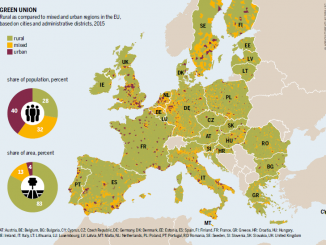Agreement on CAP reform is fast resembling a high stakes poker game, one with a related and parallel game being played alongside it. The Irish presidency of the EU, initially quite bullish about making progress on CAP reform by the June end of its term, is worried about an ongoing “fly in the ointment that could scupper the whole thing”.

Irish Agriculture Minister Simon Coveney fears that as the European Parliament has not approved the overall EU budget, the Multi-Annual Financial Framework, negotiations will be difficult to complete.
So while the negotiations themselves are difficult, the fact that the budget upon which the CAP depends isn’t even finalised yet is also a real concern.
Coveney was reported in the Irish press as stating “If we don’t get this done during the Irish presidency we hand over the file to the Lithuanian presidency who do not want this file…to be fair to the Lithuanians it is their first presidency and they have a lot to do in other portfolios without having to take on CAP reform.”
The stalling game at trilogue level, between the Commission, Council and Parliament, on the MFF is a fascinating power play unseen before in a European context.
As an example, despite the urgency and delays, it has been reported that “the Parliament’s contact group refused to meet with the Presidency to start the trilogue process” on April 25th.
Reimer Böge MEP, Co-Rapporteur of the European Parliament on the Multiannual Financial Framework (MFF), denies any responsibility by Parliament for the delay of the start of the MFF negotiations. Instead he blames what he calls a “catastrophic” position adopted by the Council.
Alan Matthews describes the MFF negotiations in detail on his blog. Much emphasis is put on the Council throwing its weight around in an unprecedented manner:
“…when the EP’s Budget Committee met on 20 February 2013 to consider the Council conclusions, the committee’s chair Alain Lamassoure claimed that the European Council had staged a legal coup d’etat and had ignored the role of the Parliament.”
He also points to “the apparent willingness of senior EP figures to countenance a delay in approving the MFF, possibly until after the May 2014 elections to a new European Parliament. This would trigger a system of annual budgets linked to the 2013 level which would make available more money than foreseen under the European Council’s MFF.”
So in a time of cutbacks and austerity, and of a supposedly smaller MFF and CAP, no news could actually lead to more costs for all concerned.




